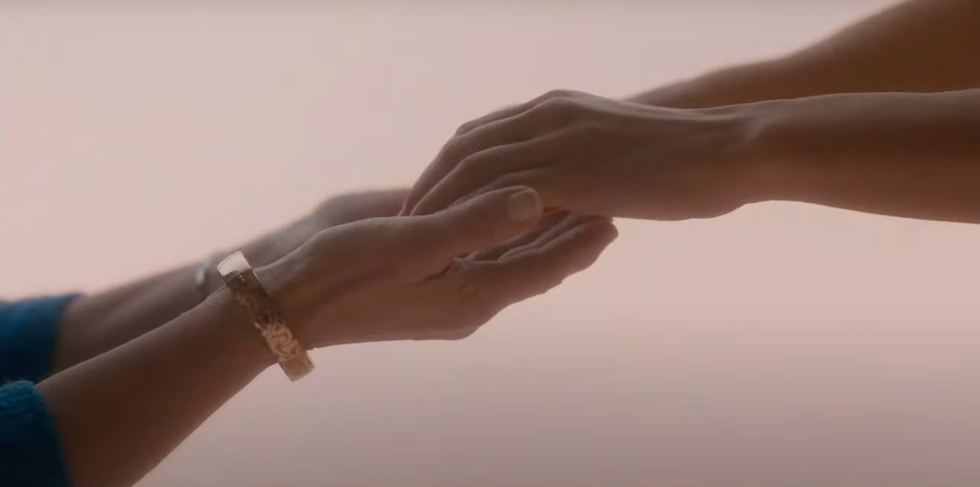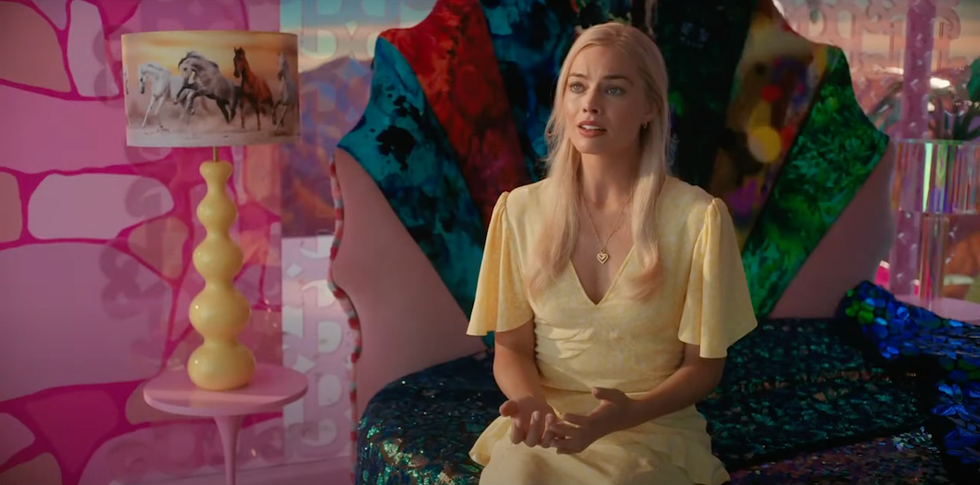
I had to watch Barbie twice to every try and catch everything director Greta Gerwig added into the plot. The first time I saw it, I was reeling so hard from all of the jokes and references — as well as the unhinged inclusion of a full scene from the 1995 BBC Pride & Prejudice — that a lot of the movie's ending kind of went over my head.
The final 30 minutes are filled with commentaries on identity, equality, and respect. (Is now an appropriate time to question why it took a movie about kids' toys to start worldwide conversations about these topics?). However, there was one aspect of the movie I completely missed — and it ended up being the most important detail.
Exploring The Human Experience

At the end of Barbie, creator Ruth Handler takes Margot Robbie's character away from Barbieland and into a kind of in-between world that totally reminds me of the Wood Between The Worlds from The Magician's Nephew (Greta Gerwig *is* directing the next Narnia movie, so maybe that's not that much of a stretch).
Ruth takes Barbie's hands and tells her to feel. Not analyze the past, not figure out the future, just to rest in the present.
By this point in the film, the idea of emotion has come up multiple times as Barbie explores the real world, experiencing pain and true joy for the first time. But as she's deciding whether or not she wants to be human, Ruth's request indicates that experiencing human emotion is the key to her transformation.
Barbie takes a deep breath and behind the piano chords of Billie Eilish's "What Was I Made For?" comes the aforementioned most-important-detail: you can hear the faintest heartbeat (so faint, in fact, that you could take your own deep breath and miss it). And suddenly she's human.
Cue one of the most emotional movie sequences of the year, comprised of a home video montage against "What Was I Made For?" Billie, who gave you the right!! I absolutely cried throughout the entire sequence, not just because it was beautiful, but because of how simple it was.
Barbie remembers the feeling of the breeze, and the way the leaves sound when the wind blows. She experiences memories from people she's never met, but that's the whole point: you don't have to know the women in the montage to resonate with it. It's made me dwell on the time I've spent with my mother, my sister, my grandmother. The times I've cried with my friends and laughed with my cousins. The joy is nothing but contagious, and every time I watch it from here on out, I'll embrace it with open arms.
Why The Barbie Ending Is So Important

Considering women are constantly shut down for being too emotional and too dramatic, this triple threat of feeling + "What Was I Made For?" + montage is the absolute standout of the whole film for me.
The idea that this thing we've been made to believe is a weakness is actually one of our greatest strengths is like a balm to my soul!! Excitement, passion, tears — no matter how emotional you are, it shows just how much we care about our favorite things and it makes the world so much richer. And it's not just us! Greta also cries a lot, so she's right there with us.
That's what I think a major thesis from Barbie is: emotion isn't just an accessory to the human experience — it plays a vital and foundational role in making the human experience worthwhile.
What did you think about the Barbie ending? Let us know in the comments!
Lead image via Warner Bros.
0 Commentaires